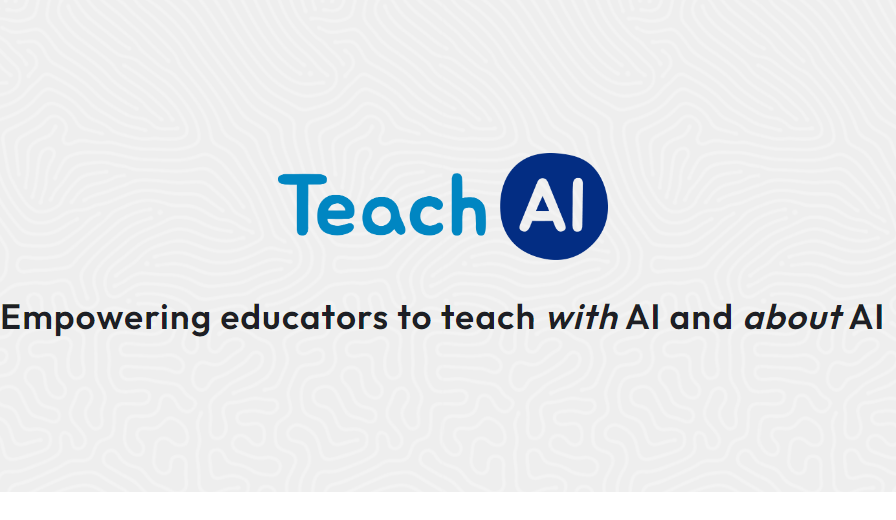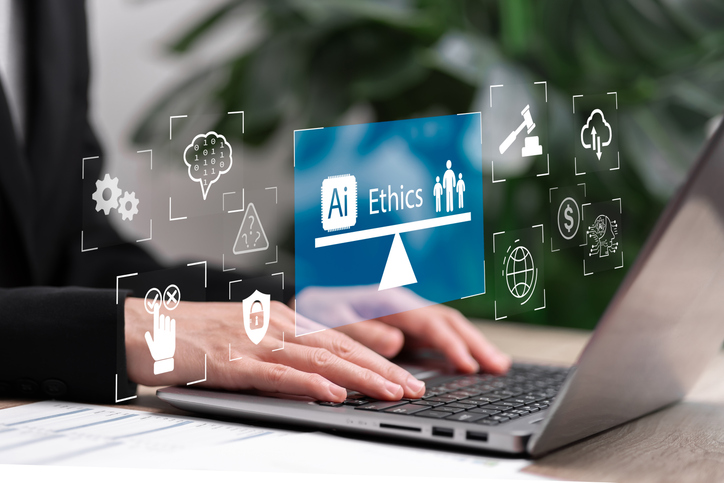What is TeachAI? The AI Education Resource Explained by ISTE’s Chief Learning Officer
TeachAI is an AI resource for educators and school leaders launched by Code.org, ETS, ISTE, Khan Academy, and World Economic Forum.

TeachAI is a new resource for artificial intelligence (AI) in teaching from some of the biggest names in tech and education, including Code.org, ETS, ISTE, Khan Academy, and World Economic Forum.
The website TeachAI.org will serve as a one-stop resource for educators and will ultimately offer policy and pedagogical recommendations for teaching with AI, a global framework for computer education that includes AI, and provide public engagement opportunities around AI for educators.
TeachAI is in part a response to the explosion of interest in AI technology in education that has been powered by ChatGPT and other generative AI tools. Joseph South, Chief Learning Officer at ISTE, says his organization and others involved in TeachAI have been pushing for more AI resources for educators since long before ChatGPT was released. They've also wanted a space for various stakeholders to come together and discuss this exciting but also challenging new technology.
“This is not a group of organizations that are coming together saying, ‘We have all the AI answers. Sit down and listen to us,'” South says. “This is a group of organizations saying, ‘We've been in this space for a long time. We've been thoughtful about issues, and we want to engage a larger conversation.’”
What Resources Will TeachAI Offer?
TeachAI will focus its initial efforts on three areas:
1. Policy and pedagogical recommendations for teaching with AI
Teach.AI will provide guidance and best practices around teaching with AI, safely and ethically, South says. “We'll also write some vision around assessment, which I know is on everyone's mind.” Another part of this process will be to bring all the resources already available from various Teach.AI stakeholders together in one place. “For example, ISTE already has five project guides that are open source and any teacher can use to bring AI into their classroom right now,” South says.
Tools and ideas to transform education. Sign up below.
2. Develop a global framework for computer science, including AI
“The K-12 CS framework is going to be updated as part of this work,” South says. It will be expanded to include AI and will include recommendations for a global audience. This new framework will be designed to help guide standards, curriculum, professional learning, assessments, and policy.
3. Public engagement opportunities for educators and administrators
TeachAI will be a place to have a conversation around AI in education overall and will host webinars, blog posts, emails, and social media to collect input and share best practices. “It’s just making sure that communication is open,” South says. “A lot of people went out of the gate thinking, ‘Oh, we're going to deal with this by banning ChatGPT,’ and they thought that was absolutely the right decision. Then they were surprised to get pushback. And that's not because anybody was acting in bad faith, but because the conversations were being convened without everyone at the table.”
How Can Teachers Utilize TeachAI?
Those interested in learning from TeachAI’s resources and future guidances, webinars, etc. can go to TeachAI.org and select the “get updates” button on the homepage to receive updates. Educators interested in taking a more active role with TeachAI can select the “join TeachAI” button located on the home page to potentially participate in the research and work the organization is conducting.
AI seems destined to be an integral part of education and South is looking forward to helping educators find the best uses of it in the classroom, even though he knows the process won't always be smooth.
“Like any new technology, it's going to be bumpy and wild, and we should expect some false starts," he says. "We should expect stories of AI being used in ways that make us all uncomfortable, but I think we'll also discover really exciting applications that make us excited for the future of teaching and learning.”
What Organizations Are Involved?
The TeachAI website will bring together leaders in the tech and education fields to share best practices.
The effort will include input from tech companies such as Amazon, Cisco, Microsoft, and OpenAI, and education organizations such as AASA (The School Superintendents Association), College Board, Council of Chief State School Officers, National Association of State Boards of Education, National School Boards Association, and many more.
Top researchers and equity-focused groups such as Black in AI and National Center for Women & Information Technology (NCWIT), will also participate.
- The Need for AI PD
- 5 Ways To Teach With ChatGPT
- What is SlidesGPT and How Does it Work for Teachers? Tips & Tricks
- 10 AI Tools Beyond ChatGPT That Can Save Teachers Time
To share your feedback and ideas on this article, consider joining our Tech & Learning online community here
Erik Ofgang is a Tech & Learning contributor. A journalist, author and educator, his work has appeared in The New York Times, the Washington Post, the Smithsonian, The Atlantic, and Associated Press. He currently teaches at Western Connecticut State University’s MFA program. While a staff writer at Connecticut Magazine he won a Society of Professional Journalism Award for his education reporting. He is interested in how humans learn and how technology can make that more effective.

